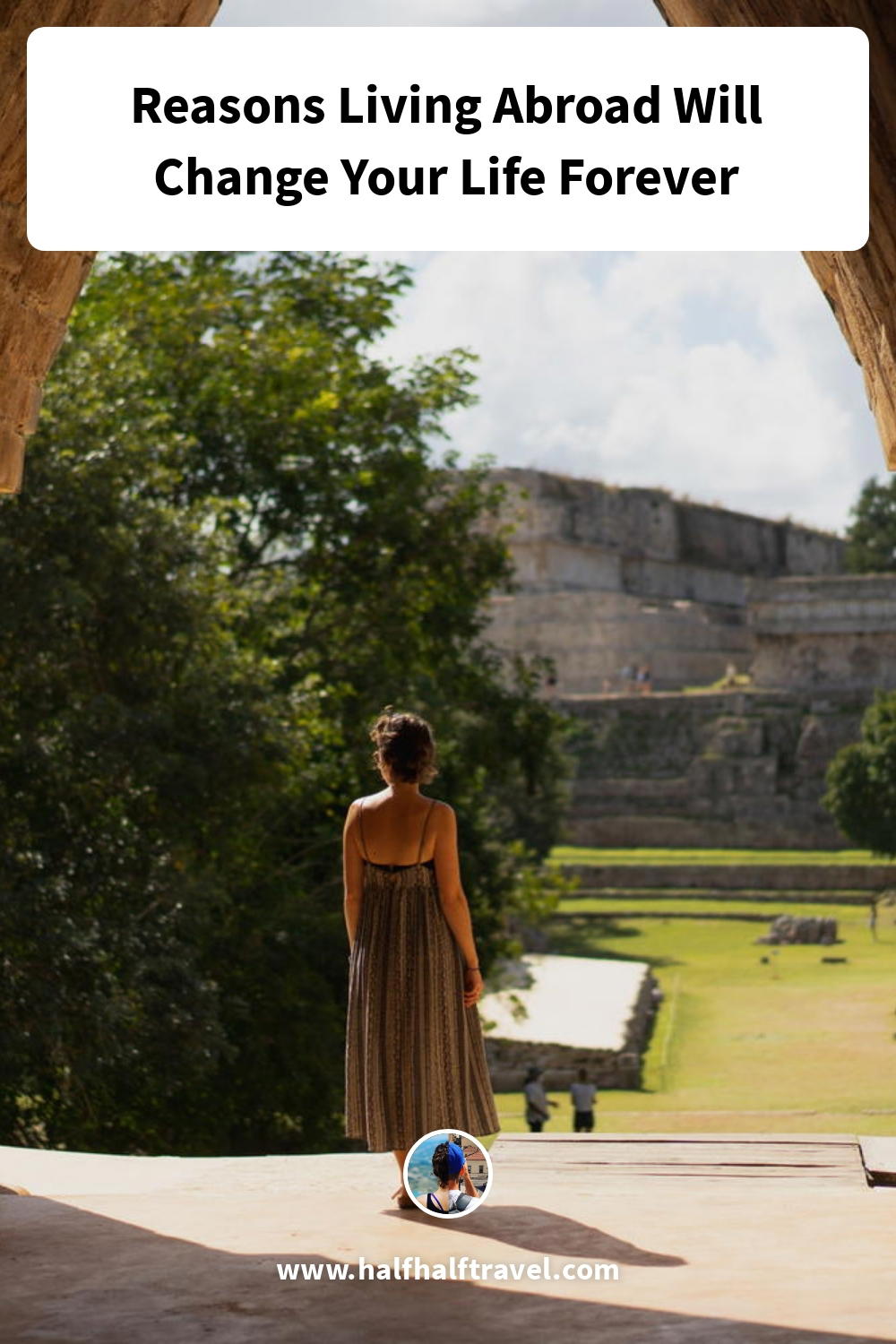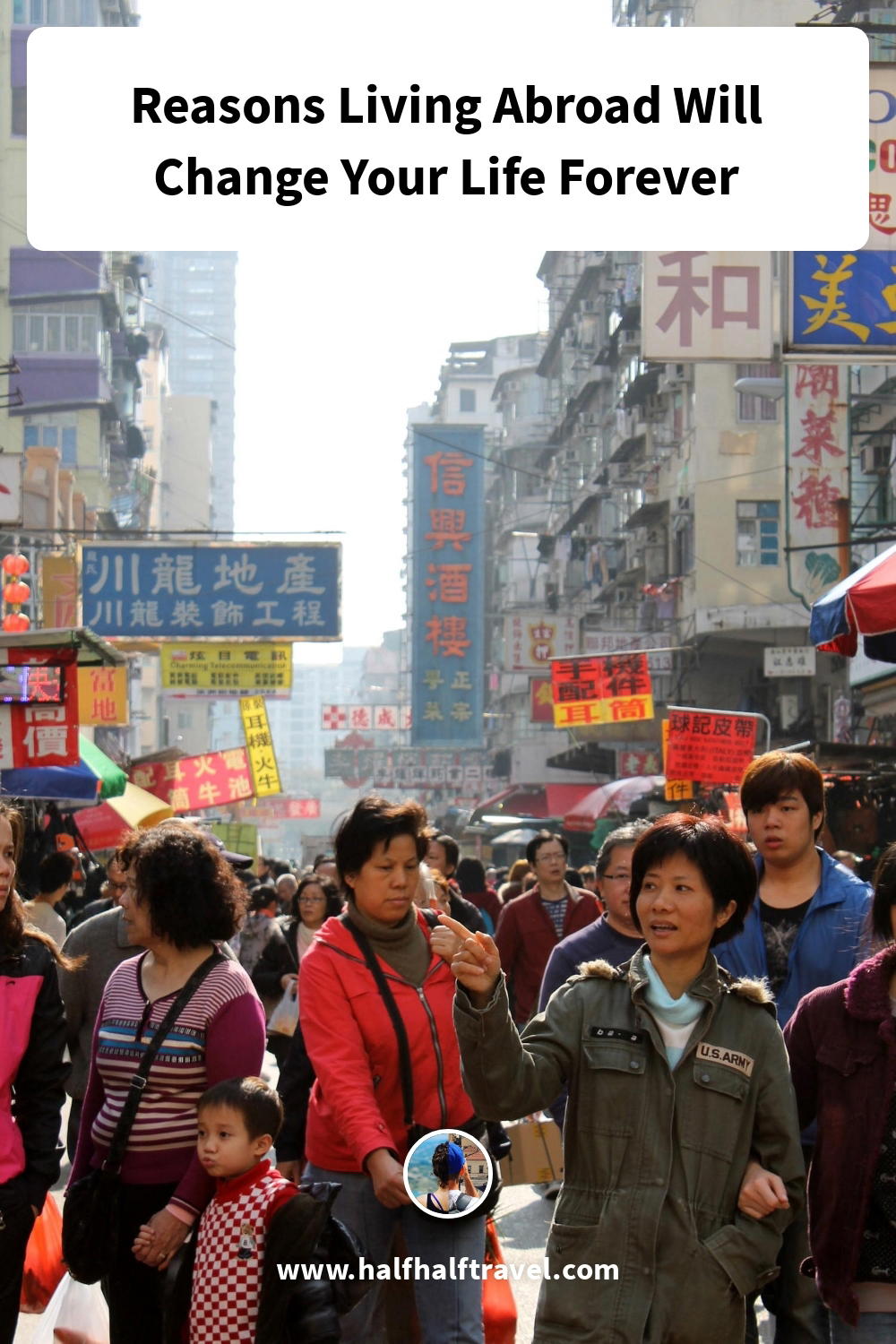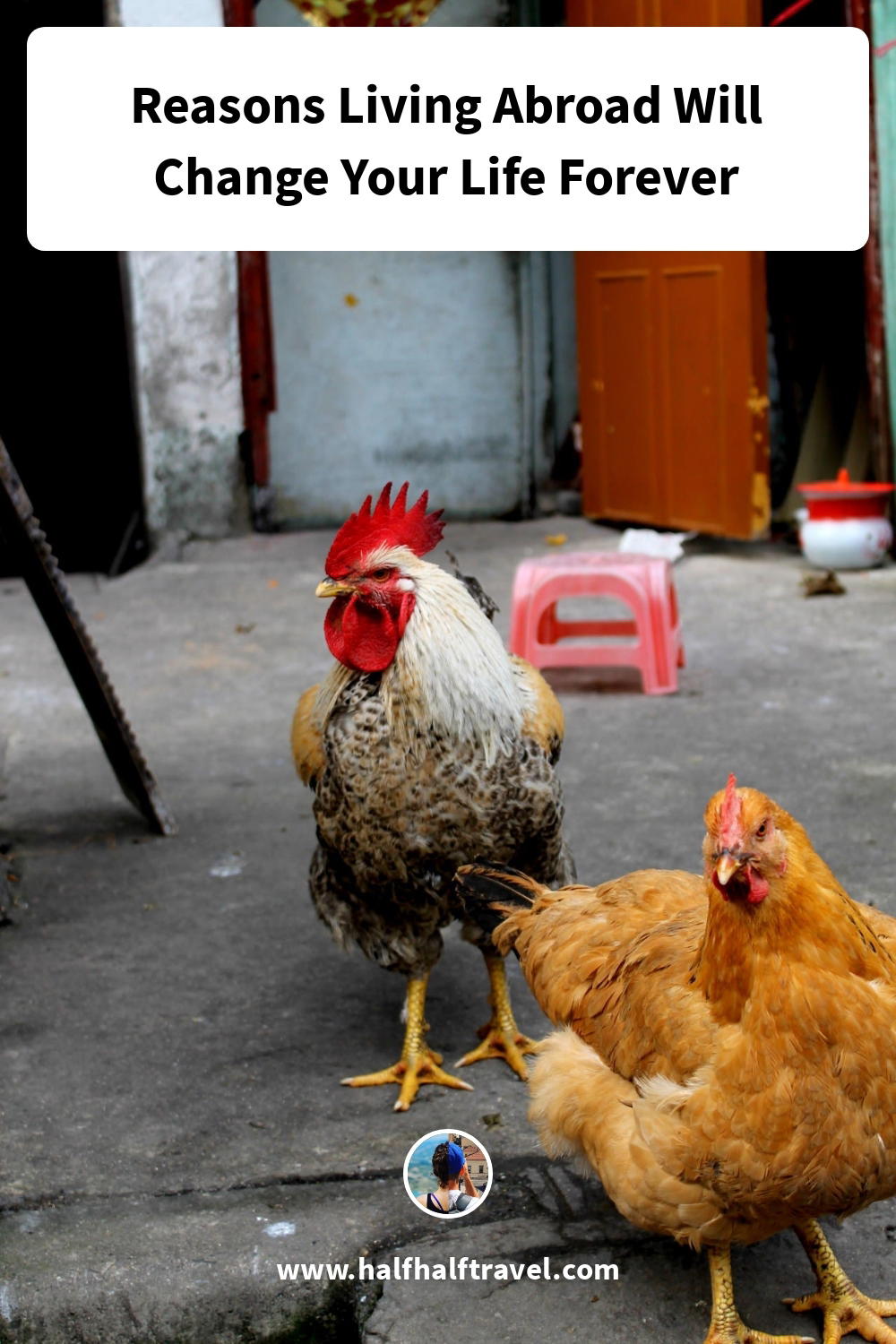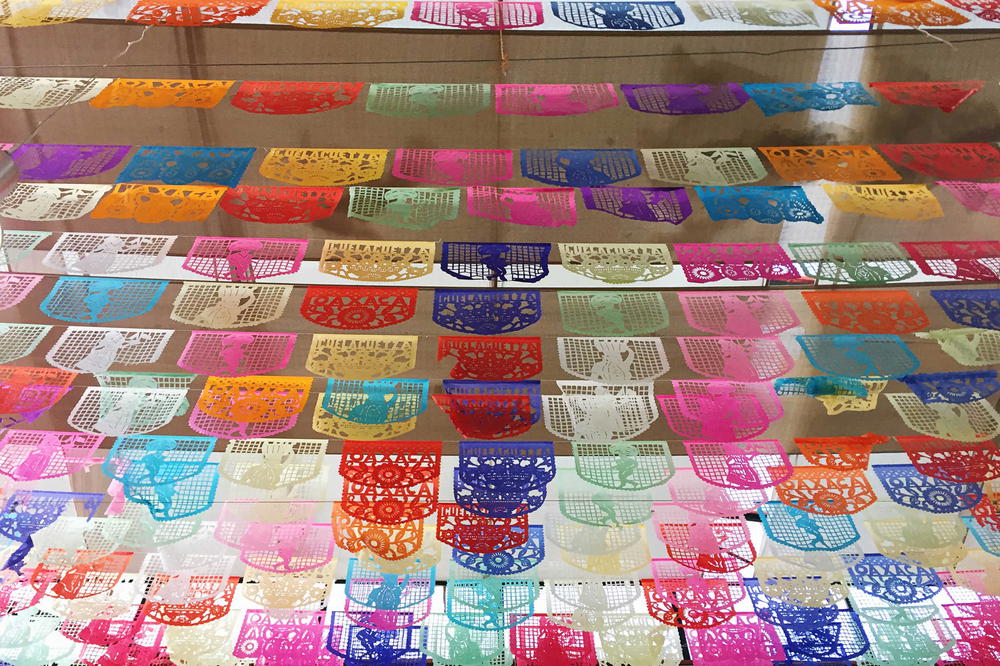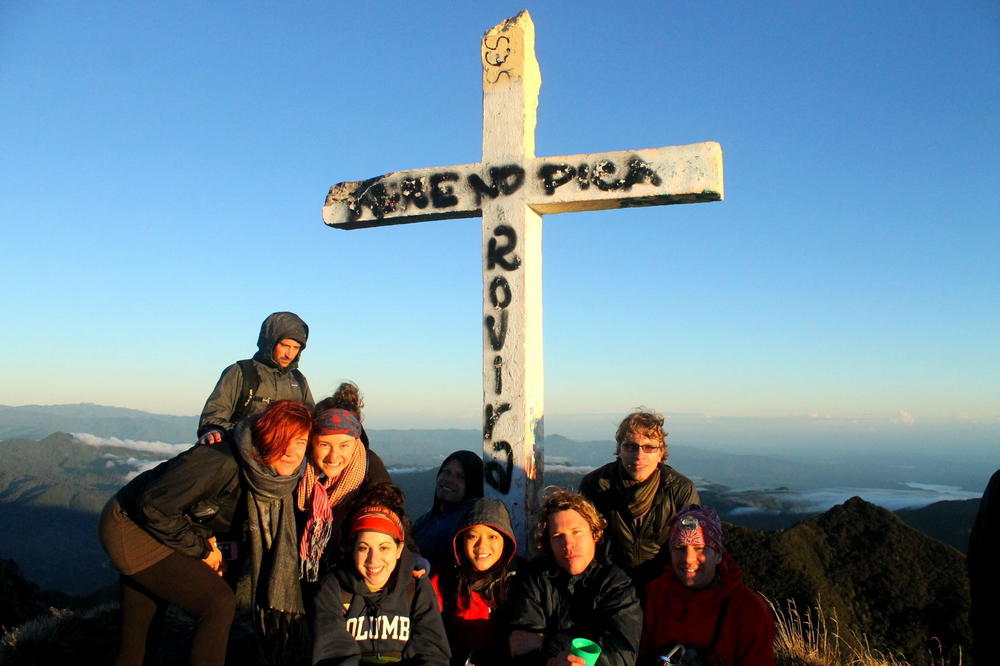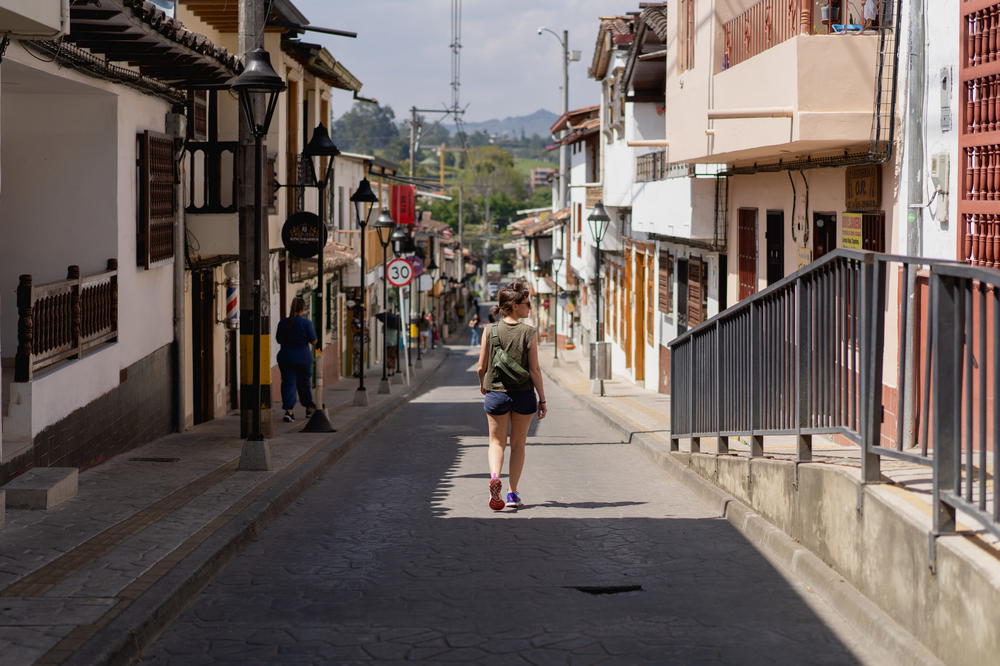Why Living Abroad Changed My Life (A Real Story)

Living abroad, working abroad and studying abroad changed my entire life in a few ways. Is it for everyone? See how living in another country as an expat changed my outlook.
This article may contain affiliate links. We earn a small commissions when you purchase via those links — and it's free for you. It's only us (Becca & Dan) working on this website, so we value your support! Read our privacy policy and learn more about us.
If you ask me how living abroad changed my life, I can’t give just one answer.
The number of things that living abroad did for me is immense. It’s probably the most awe-inspiring experience I’ve ever had, along with the most frustrating, unbelievable, shocking and surprising one. Living abroad let me experience every single emotion I can think of.
It’s more than that, though. Living abroad will twist and turn your definition of independence and acceptance. It will teach you things you didn’t know you needed to learn. Above all, it will change how you look at the world and what you want out of life.
OK, that was a lot! If you are itching to see how itching abroad changed my life, and how it might change yours, see what I have to say below.
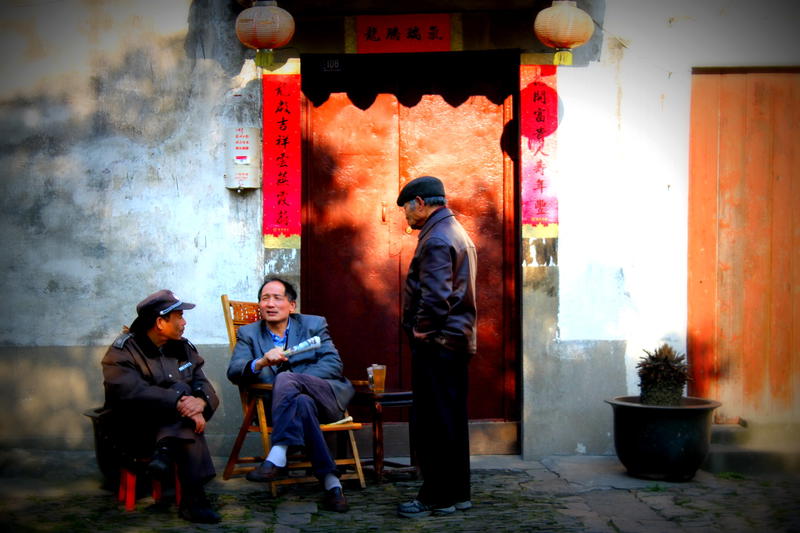
When did I live abroad?
This is a bit of a three-part answer from me. I’ve lived abroad in three stints, as I’ll call them.
I did study abroad when I was 20
The first time was study abroad in 2009. I chose to be an exchange student at the City University of Hong Kong in, of course, Hong Kong. This was a five-month experience during which I lived with a roommate who came from China (Carol, and she is fantastic) and took four or so classes with Hong Kongese local students.
During my experience studying abroad, I also made friends within the exchange program from other parts of the US, Taiwan, England, Sweden, Norway, Spain, Denmark and Canada. This was the first time in my life I made friends with internationals, and realized we all had quite a bit in common.
As it would turn out, I’ve been very fortunately able to meet up with these friends in other parts of the world, as we “grew up” through the years.
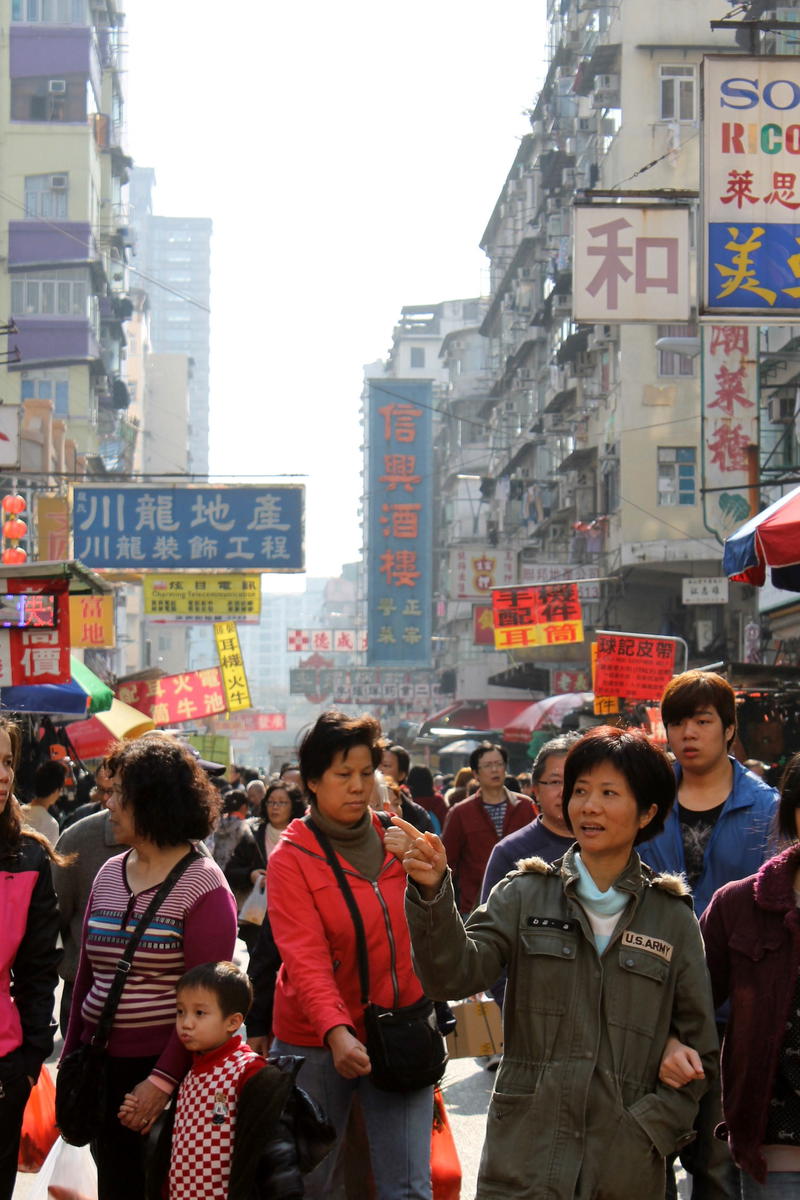
I worked abroad when I was 22
The second time I lived abroad was the longest. After I graduated college, I knew I needed to go back to Asia. The question was how.
I applied to two jobs teaching English: one in Hong Kong and one in Shanghai. I didn’t know much about Shanghai, except the fact that I had gone there on a long weekend trip to see my cousin, who was studying abroad there while I was in Hong Kong for those five months.
The job in Shanghai paid better and had been referred to me by an American friend of a friend, so while it broke my heart not to go back to Hong Kong, I signed up for a year of working in Shanghai, China.
Starting in 2010, I started my job in Shanghai, in the east of the city called PuDong. People described it like New Jersey: it was outside the main area of the city, and got suburban, with more green spaces, and no one wanted to go there for the most part (this is funny, because I grew up in New Jersey).
After one year of creating incredible friendships, going on my vacations to Cambodia, Vietnam, the Philippines (see: my golden years of backpacking) and various other regions of China, I did what my parents probably feared: I signed on for year two (with a pay bump).
I lived in China for a glorious second year, meeting more friends, getting more comfortable in my teaching job, forming relationships with my students’ parents, and above all, getting really good at Chinese.
My friends and I would take weekend trips to climb famous mountains, I had friends from back home come visit me and bring me American chocolate, my mom visited, I did well at my job and even got invited to my Chinese coworker’s big fat Chinese wedding.
I got home from Shanghai after ending my teaching contract, knowing that if I stayed year after year, it would be harder and harder to come home. That was true.
I flew back to the US in August 2012 and felt empty. What had I done, by leaving my life abroad?
Dan and I did the “digital nomad” thing when we were 30
“Living abroad” when we ran around the world with our laptops wasn’t quite like the first two “live abroad” experiences I had had, so I’m glad we did this as well.
Most of the remote work and travel experience you’ve read on our website is from our year of “digital nomad travel” from 2018-2019. You can also read the full story at our Our Story page.
In early 2018, Dan was my boyfriend, and he knew I was not happy at my corporate job in NYC, and he was right. I was burnt out, not getting promoted, unenthused with my salary and felt like I was coasting. He said, “What do you have to lose — we should both quit our jobs and travel.”
I know, I know: it sounds like something out of a travel blog (hey, wait a sec…). But Dan knew, and I knew, what it meant to travel the world and work remotely, also known as “living abroad but moving around a lot.”
For almost 10 months, Dan and I traveled around Europe, Latin America and East Asia, working from our laptops in coffee shops, coworking spaces and Airbnbs. It was fun! It was interesting. We like to think we were traveling and working remotely before the pandemic made it even cooler.

Because we didn’t spend more than six weeks in any given place and no more than four weeks in any accommodation, we didn’t quite form the relationships that I got to form when I lived in an apartment for an entire year in Shanghai.
But moving around often let us see both the pros and cons of a digital nomad lifestyle, and we got to see an entire salad bowl of cultures in a manageable amount of time, all while having income from our gigs and some early partnerships for Half Half Travel.
How has living abroad changed my life?
As you can see, I’ve lived abroad in a few different ways, which I think round up my argument that living abroad will change you forever.
I’ll tell you why it changed my life in a few simple ideas.
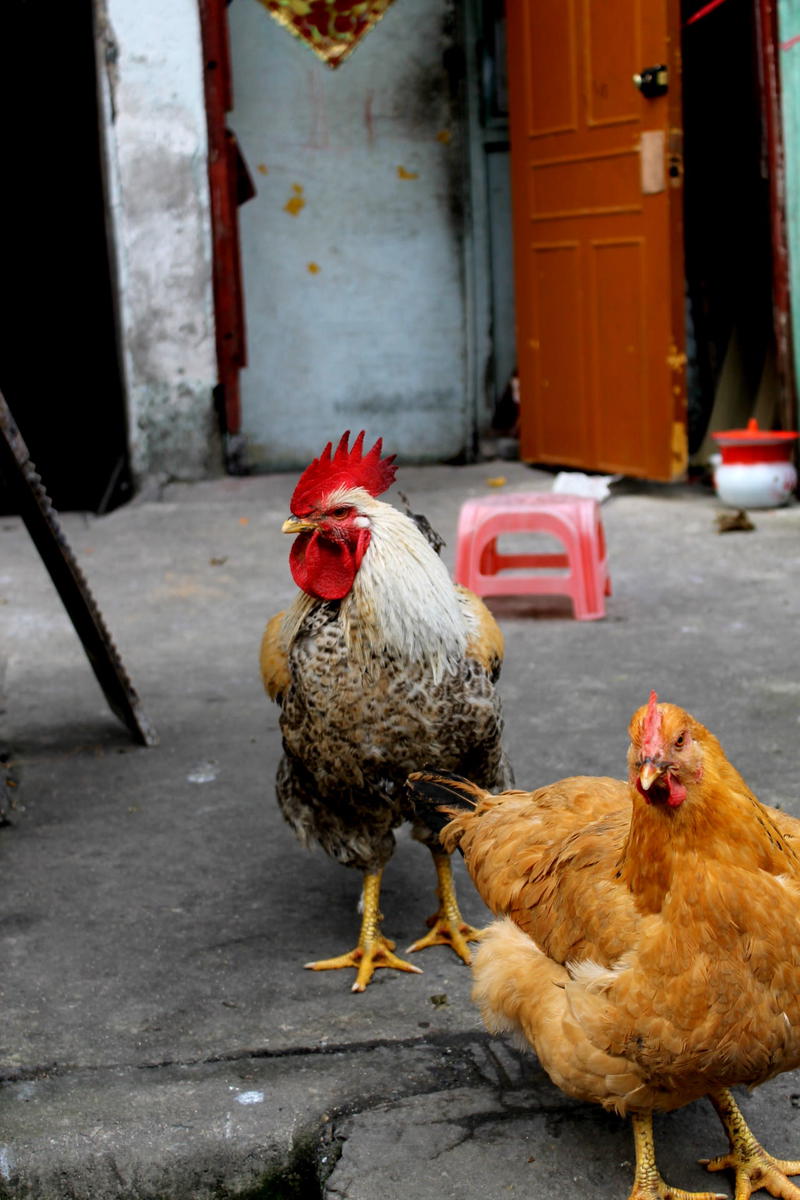
It taught me that I can live anywhere
Living abroad seems really daunting. I’m surprised I was not more daunted by it the first, or second times. By the third time I left home, I knew that there was a method to the madness, and a sort of strategy you can put into place when you leave home and settle into somewhere far from your home.
My study abroad program in Hong Kong had a few days of orientation, where we sat for some PowerPoints about Hong Kong culture and safety. In Shanghai, we were thrown into our first day of teaching with very little preparation and it was more up to us to get to know our city, the language and where to buy groceries.
By the time Dan and I left on a one-way ticket for Amsterdam and figured out how we’d secure geographic arbitrage by working remotely across the world, we were barely stressed.
When you boil it down, living abroad is a bunch like living at home: you need shelter, food and a place to work. Of course, if all the information surrounding these things is in Chinese, or Spanish, and you don’t speak a lick of those, well, then you’re in for a challenge.
But most of the time there are resources to help, and if you can do the research ahead of time or take referrals from places like expat groups or Facebook groups, you piece things together one by one and ultimately end up with your full “life abroad.”
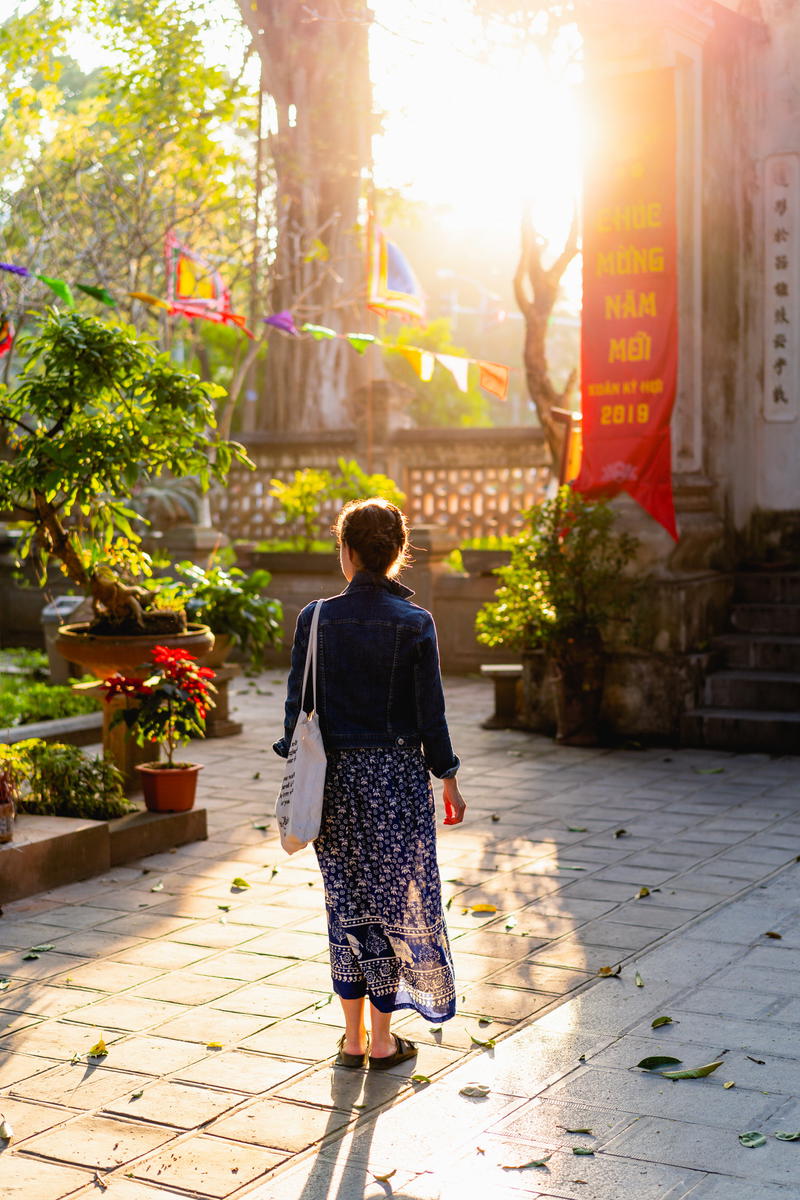
It let me see the world creatively
Living abroad makes distance start feeling small. It’s probably because of the spin you put on everything and the “it’s now or never” mindset that you use when considering where to go for a long weekend.
Even while spending four weeks in Hanoi, Vietnam, Dan and I took a weekend trip that was four hours by bus to go trekking in Sapa. This isn’t an extreme example, though: when I lived in Shanghai, I had friends who took our winter break to go to Australia because we were geographically closer than they’d ever been before, to the Land Down Under.

Living abroad kind of makes you look at the time you have, and then at the money you have, and decide if doing something crazy is going to be worth it for the experience. Oftentimes, the answer is yes, and that’s how I wound up going to the Philippines not once, but twice, for Christmas weekend in 2011 and in 2012.
When you live in another country, you start zooming out on your maps and putting a larger radius on possible travel experiences than you would at home. A five-hour flight turns into thinking, “Well, it’s closer than a SIX-hour flight.” needing to invest the time and money into a travel visa for a three-day trip is kind of like, well, maybe I’ll put this to good use again within the decade before it expires.
It gave me the confidence to make new friends
I landed in Shanghai in August 2010 and I was alone. I was armed with two things I knew: one, that my friend Matt had a college friend Tom who was living in Shanghai, and two, that someone I knew from high school said that my old friend Lucy was living in Shanghai as well. With that, I almost had two of my first “abroad friends.”
After (of course) introducing Lucy and Tom to each other, and building off of both their networks, I landed my first group of true friends. As we all had friends of friends move to the city, we’d invite them into our crew, and we’d have amazing nights out on the town, discovering great street food, taking photos on my Canon point-and-shoot pocket camera and having adventures.
My friend group didn’t stop there, though. There were my coworkers, my friends from Friday nights at synagogue and the friends I made from my volunteer organization, BEAN. BEAN attracted both expats and locals, and aimed to make them friends with each other, while doing volunteer activities with children and with elder folks at nursing homes.
After two years in Shanghai, the number of cool, interesting and intelligent friends I had made was too many to count. It was sad to leave everyone, but I felt blessed that living abroad had given me everything I put into it, in terms of creating a family far away.
It made me never want to sit still
Living in a city like Shanghai, and in gigantic metro areas like Mexico City and Lima, Peru, made me into the type of person who has to always be on the go. In these types of places, I know that there’s always something going on, whether it’s a local festival, a national holiday or a special spectacle in the city. There’s always something new to see, and if you just sit home when you live abroad, you’ll miss it all.
I took this mantra back with me when I moved back to NYC. I didn’t live in NYC like other life-long New Yorkers or transplants did. I lived in NYC like it was a foreign place where I applied all my live-abroad rules.
A free Saturday afternoon? I’d go somewhere far-flung in one of the Outer Boroughs to seek out “ethnic food” with a friend. I started leading “tours” of Flushing, Queens, known for its Chinese, Taiwanese and Korean foods. Friends asked when they could next come with me to get my local take on the area.
Living in Shanghai, I joked that my apartment was just where I parked my stuff. Even in the dead of winter, which in Shanghai is cold but also wet, I’d hit up new friends I’d made at volunteering events or via other friends on a night out, and see if they wanted to check out new exhibitions at museums downtown, or stop by a restaurant we’d both never been to.
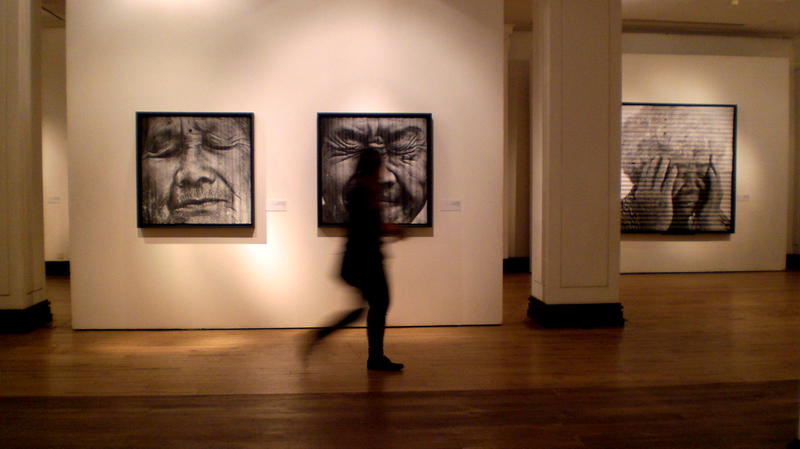
When the weather was nice, my friends Anthony and Tom and I would go on “scavenger hunts” put out by the Time Out Shanghai magazine, and these “hunts” took us on walking tours through quiet neighborhoods with elusive secrets that even locals didn’t know. It was fascinating.
Had I had a step-counter or Apple Health back in those days, my miles walked would’ve been something to frame on the wall.
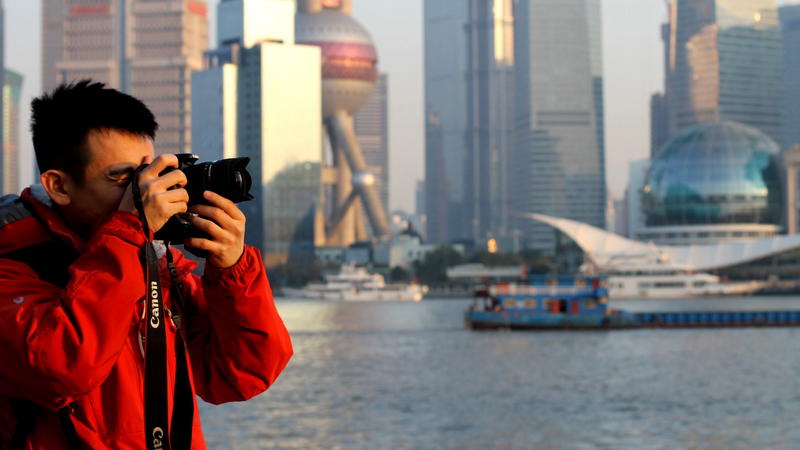
It made me a food snob (seriously)
I’ll use the example of China because I lived there the longest. The food in China is incredible. It’s hard to explain to anyone who hasn’t been there because the food in China is eons away from the Chinese takeout spot down the street in any American city.
We’d joke that at home, you’d think, “Hey, wanna get Chinese food for dinner?” and in China, you’d say, “Hey, wanna get food for dinner?” (Ha.)
Living in Shanghai, I got to know about the food from northern China, southern China, western China and eastern China. They’re all known as having distinct flavor palettes as well. I’d learn about local foods when I traveled to other parts of China. It’s like knowing that Boston is known for clam chowder, and Texas for BBQ. I knew that I’d be going to Chongqing for hot pot and to Hunan for spicy food that would make me sweat.
Going back home and being offered Chinese food was basically a big “no thanks,” or a giggle that the food resembled nothing of those nights we’d eat at DongBei SiJi JiaoZi Wang (a “northeastern” Chinese restaurant that was in a neighborhood next to mine in Shanghai).
I also became the Chinese food expert among my friends once I returned home. Friends would text me about which Chinese restaurants in NYC I considered “authentic,” and such-and-such topics.

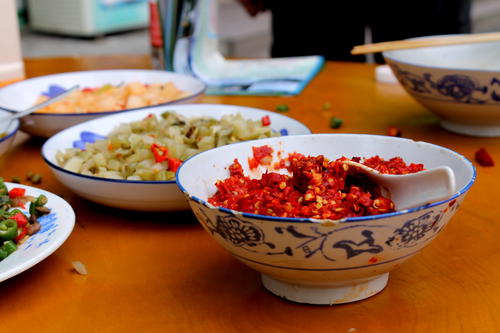
It provided me with a home away from home
Once I created “home” in new parts of the world, they came to occupy a new special place in my heart.
My Hong Kong dorm room, the one I shared with Carol — it was where I did my studying, Skyped my parents and got ready for nights out. I did my laundry on the roof (where the laundry machines were) and learned how to say “thirteenth floor” in Cantonese because the elevator would announce it that way.
My Shanghai apartment — the one I rented with a realtor and chose because I liked it — became home. I hosted friends on that couch and posted their thank-you notes on my little fridge. I took photos of the cityscape off my balcony. I went to IKEA and bought towels and bedding for my bedroom. I had a birthday party, a house party (or five) and a going-away party when I left town. It was actually my first real adult apartment.
If I were to go back to either of those places, the memories would flood back, just like they would for any of my NYC apartments.
Should everyone live abroad?
Probably.
Nah, I am just kidding. Living abroad is not for everyone, and that is clearly why not 100% of people have done it.
I’m grateful that many of my friends have done it at one time or another, though, and for this reason, we all sort of have a shared experience that delights me.
Living abroad is not for the faint of heart, but it is for the person who wants a challenge, an eye-opener and a life-changing experience.
Lucky for anyone interested in living abroad, whether to study, work or just hang out and exist, there are loads of ways to do it. You can volunteer abroad, you can work abroad, you can find classes to take abroad, whether in private institutions or at universities and you can usually rent an apartment abroad with few strings attached.
Living abroad ultimately taught me that there is life outside the bubble of existence I knew in my first two decades on this Earth. I have been so fulfilled by the things I’ve learned about how people around the world are different, and yet very much the same, while living in several different countries.
Sure, you can say this for traveling, but by living your day-to-day life in another country, you get a taste for how you as a human operate in another culture. You might just surprise yourself.
You may also like
-
![Manhattan bridge in new york city.]()
NYC Travel Influencers and Bloggers to Follow
Looking for new travel bloggers and influencers who call NYC home? These NYC-based professionals are talented, and will give you inspiration to travel, in addition to exploring NYC.
-
![A display of colorful paper lanterns hanging from a window.]()
The Neon Tea Party: Crafting with Global Inspiration
Marisa started her crafting business and creative brand from a love of world travel and global inspirations, from Mexico to India. She turned her love for colors and patterns to teaching crafting classes!
-
![]()
Reflections on the Golden Age of Backpacking (late 2000s-early 2010s)
Backpacking in the early days defined how I think about travel, and how I long for the days of no smartphones, meeting people in hostels and enjoying the simple life. Here’s how backpacking is different now, from what it once was.
-
![]()
Why We Don’t Take Vacations to Resorts (What We Do Instead)
We don’t take resort vacations, and we still have great travel experiences. Want to see what we do instead of booking resorts, and why we do it? Read my experience in why I avoid resorts.
-
![A bearded man wearing a grey t - shirt holding a cup of coffee.]()
Adam’s Coffee: Exploring Travel through Coffee
Ever think about traveling around the world for coffee? Our friend Adam started his Instagram to combine his love for coffee and travel. In this interview, he’s sharing how it all began.
-
![]()
My Interview Episode on the How to Money Podcast
I was featured on the How to Money podcast, one of the top personal finance podcasts in the US. In this recap, learn about the travel and remote work topics I covered.
